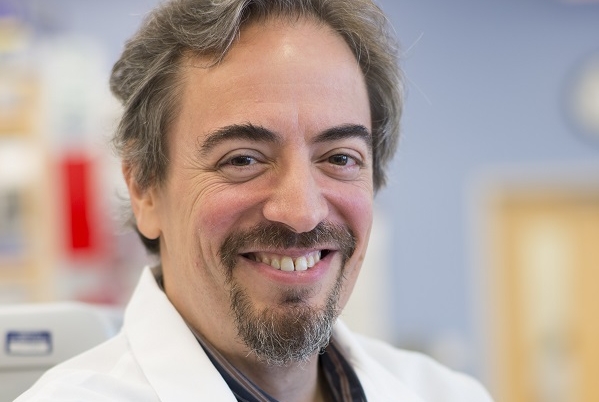Dr. Ari Melnick, the Gebroe Family Professor of Hematology/Oncology at Weill Cornell Medicine, has been awarded the American Society of Hematology's (ASH) 2020 Ernest Beutler Lecture and Prize for advancing treatment of acute myeloid leukemia through epigenetic research.
The award and lecture, named for Dr. Ernest Beutler, past president of ASH, honors two physician-scientists for major advances related to a single topic in the basic sciences or clinical science and translational research. Dr. Melnick, who is receiving the basic sciences award, will give his lecture on the epigenetic causes of cancers of the blood, or hematologic malignancies, like acute myeloid leukemia, during the 62nd ASH Annual Meeting and Exposition in December.
“It’s kind of a surprise,” said Dr. Melnick, who is also a professor of medicine and a member of the Sandra and Edward Meyer Cancer Center at Weill Cornell Medicine. “It’s nice to learn that the field considers our contributions as being significant to improving the lives of leukemia patients and patients with hemo-malignancies. The real motivation is to help these people.”
The epigenome refers to the ever-changing chemical instructions that control how genes are expressed in cells. Dr. Melnick has made breakthrough findings into how disturbances in this process can lead to hematologic malignancies, publishing over 270 papers on the subject.
“We observe that leukemias are composed of a number of different epigenomic instruction sets that are disrupted, and it varies between patients,” Dr. Melnick said. “But the disruption is always there. All patients have it.”
His team has identified the pathway by which mutated enzymes called isocitrate dehydrogenases 1 and 2 (IDH1 and IDH2) that are involved in metabolizing glucose can cause blood cells to behave as cancer cells. Drug compounds have been developed to treat leukemia by inhibiting the mutant forms of these enzymes. They are “now in large scale phase three [clinical trial] testing to determine if, when given upfront to newly diagnosed patients, they can be curative from the beginning of treatment,” Dr. Melnick said.
One of the leaders in this research was Dr. Maria Figueroa, a former postdoctoral fellow in his lab at Weill Cornell Medicine, who is now an associate professor at University of Miami Health System, said Dr. Melnick. Dr. Melnick also worked in close collaboration with Dr. Ross Levine and Dr. Craig Thompson, both at Memorial Sloan Kettering Cancer Center.
“It’s important to recognize science is a community effort. A lot of the success of this line of research is not due to any one single person, but rather the coming together of groups of scientists who interact in a transparent and generous manner with a common goal of having an impact on patients,” said Dr. Melnick. “This award is truly for the whole team of people I’ve been collaborating with on this over the years.”

